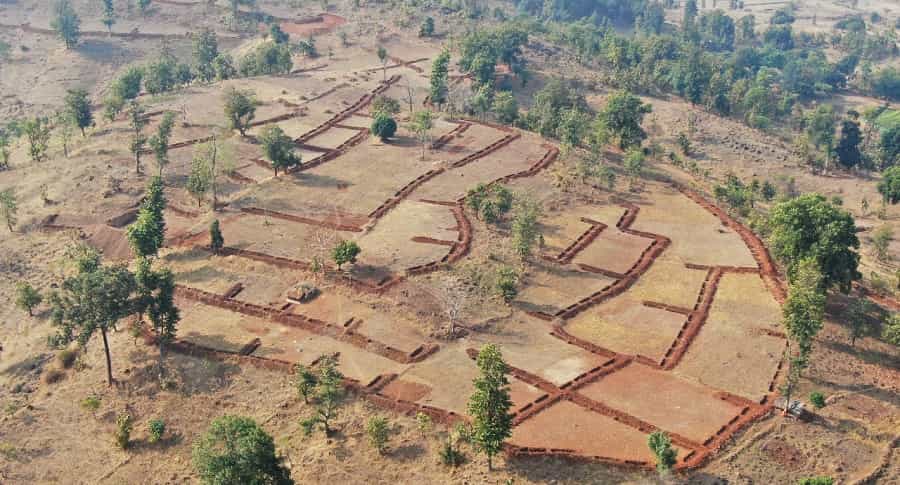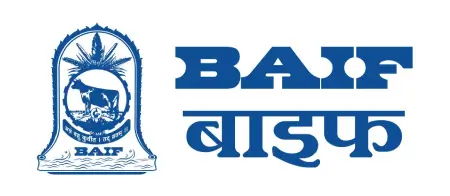
India is an agricultural country. Hence, the economy of India is dependent on the agriculture sector. Agriculture and farmers have assumed unique positions in Indian society. The population is increasing day by day and along with the increasing population, the comforts and conveniences of people i.e. buildings, roads, settlements, industries and dams are also increasing rapidly. Therefore, the amount of arable land is gradually decreasing. The challenge is to satisfy the hunger of the growing population from the limited agricultural area. After independence, Green Revolution emerged and our traditional farming system started changing into a modern farming system.
To obtain more yield, we started cultivating hybrids and improved varieties of crops which gave maximum yield initially. But as crop production increased, so did the uptake of nutrients from the soil. This resulted in deficiency of different nutrients in the field and the amount of organic carbon in the field also decreased. We started using chemical fertilizers to overcome the deficiency of nutrients in the soil. Due to the balanced use of primary and secondary micronutrients, we were successful in increasing the productivity and quality of crops.
Chemical fertilizers have given us tremendous benefits. In the last 50 years, farmers have been using excessive amounts of chemical fertilizers in an unbalanced way in an attempt to obtain more production. Therefore, it started having an adverse effect on the availability of nutrients. For example, if the phosphorus content in the soil was high, micronutrients like zinc and iron in the soil were not available to the crops even though they were in the soil. Therefore, it is important to balance the nutrients with the right fertilizers to compensate for the nutrient deficiency in the soil.

Many farmers believe that the more water they give to crops like sugarcane, the higher will be the yield. Thus, farmers continue to water the crop even when it is not needed. As a result, the soil loses its nutrients. Some farmers dig wells and borewells in the fields and use the groundwater for irrigation. The amount of salt in such water is high. Due to the excessive use of such water in agriculture, the soils become saline and over time, these soils are converted into unproductive soil. Therefore, it is necessary to plan the watering of the agricultural field.
New hybrid varieties of crops have come into the market which enable farmers to receive maximum output from agriculture. However, these crops are also attacked by various diseases and pests. Farmer can manage these diseases and pests by traditional, physical, mechanical, biological and chemical methods. In recent years, farmers are also in a hurry to receive quick yields and returns. To achieve this, they make excessive use of different chemicals which is much more than the recommended use. Thus, due to over-use of chemicals, the chemical residues accumulate in the soil and destroy soil beneficial microorganisms and degrade the quality of the soil.

To increase the area under cultivation, we have started clearing forests and establishing agriculture and thereby changing the landscape created by nature. As a result, the fertile soil layer on the surface of the land has started moving from one place to another. This is what we call soil erosion. Soil erosion adversely affects agricultural land. The fertile layer of the soil is lost, while in some places, the soil on the hill slopes is eroded and the materials such as mud, soil, stones, sand, etc., flow along with the flow of water and spread on the fertile land rendering the fertile land useless. In some places, there are problems of flooding, while in some places there is division of land. Soil erosion in this manner adversely affects soil health.
The UN General Assembly launched 2015 as the “International Year of Soils” under the theme “Soils: A Foundation for Family Farming” which aimed to create awareness in civil society and decision-makers about the fundamental role of soils in human life. Similarly, we are celebrating December 5, 2023 as “World Soil Day” under the theme “Soil and Water: A Source of Life”. The main purpose is to raise awareness of the importance and relationship between soil and water in achieving sustainable and resilient agrifood systems.
BAIF’s Initiatives on Soil Health Management:
- As more capital is required in modern agriculture, soil and water testing is extremely important. Regular soil and water testing is the key to planned and profitable farming. Under its Pro-Soil Project, BAIF Development Research Foundation undertook soil testing and distribution of soil health cards among the farmers in various land-based programmes followed by technical guidance by BAIFs Agricultural experts on soil test-based nutrient management to ensure balanced use of fertilizers based on the needs of the crops.

2. To prevent the top fertile layer of soil from being washed away with rain water, the hill slope soil was protected by adopting water-centric livelihoods for land degradation neutrality and soil carbon enrichment. Till date, BAIF has developed 789 watersheds covering 3,72,109 hectares area which has raised the groundwater table and green cover, improved micro-climate and increased agricultural productivity by 35 to 40 %. The estimated carbon sequestration/offset achieved through BAIFs initiatives on natural resources management, silvopasture, soil health improvement and efficient water use is about 1,00,000 t C per year.

3. To reduce the soil disturbance BAIF promoted direct seeded rice technology on 1102 ha in Andhra Pradesh and Bihar and zero tillage cultivation practices on wheat demonstrated on 3532 ha in Bihar.
4. With increased organic carbon content in soil, BAIF promoted green manuring activity with Dhaincha, Sunhemp and Navadhanya on 1000 ha at Prakasam, Palnadu and Eluru districts of Andhra Pradesh. To improve the organic carbon content in soil and alternative solutions for crop residue management BAIF promoted Biochar, vermicompost, farm yard manures, city compost, biodigester, bio-prom and decomposers in Maharashtra, Odisha, Telangana, Karnataka and Uttarakhand.

5. Generally, 33 % of the total area in any village, district or state should be under forest cover. To convert the uncultivated land into productive assets and increase the tree cover outside the forest, BAIF has been implementing the Agri-Horti-Forestry (Wadi) programme and has planted fruit and forestry trees on 89,000 ha. The BAIF Wadi model has been scaled up in 25 states with the support of NABARD. Two million tons of total estimated carbon has been sequestered through the wadi programme.

6. To reduce the production cost of farmers and to reduce the excess use of chemicals in agriculture, BAIF established 10 Drums, Jeevamrut, Bijamrit and Dashparni Neem Ark and Vermiwash units at the village level and guided the farmers on its preparation and application.
7. BAIF has promoted integrated pest management, bio-fertilizers and bio-pesticides under various projects.
8. To end mono-cropping system, BAIF has promoted and introduced alternative crops at farmers’ fields and maintained a crop rotation system.
9. To increase nutrient use efficiency BAIF demonstrated and promoted Briquettes technology in rice crops with 157 farmers at Bhor, Welhe, Rajgurunagar and Jawhar in Maharashtra.
10. To increase water use efficiency and avoid excess use of irrigation water, BAIF has promoted Drip and Sprinkler irrigation systems. This has ensured conservation of 90 % of water and prevented soluble elements of our soil from being washed away.


Dr. Sagar Jadhav
Senior Research Officer
BAIF Development Research Foundation, Pune

Very nice article, beneficial for agricultural students and Indian farmers.
Great Work @BAIF
you are truly a just right webmaster The site loading speed is incredible It kind of feels that youre doing any distinctive trick In addition The contents are masterwork you have done a great activity in this matter
I do trust all the ideas youve presented in your post They are really convincing and will definitely work Nonetheless the posts are too short for newbies May just you please lengthen them a bit from next time Thank you for the post